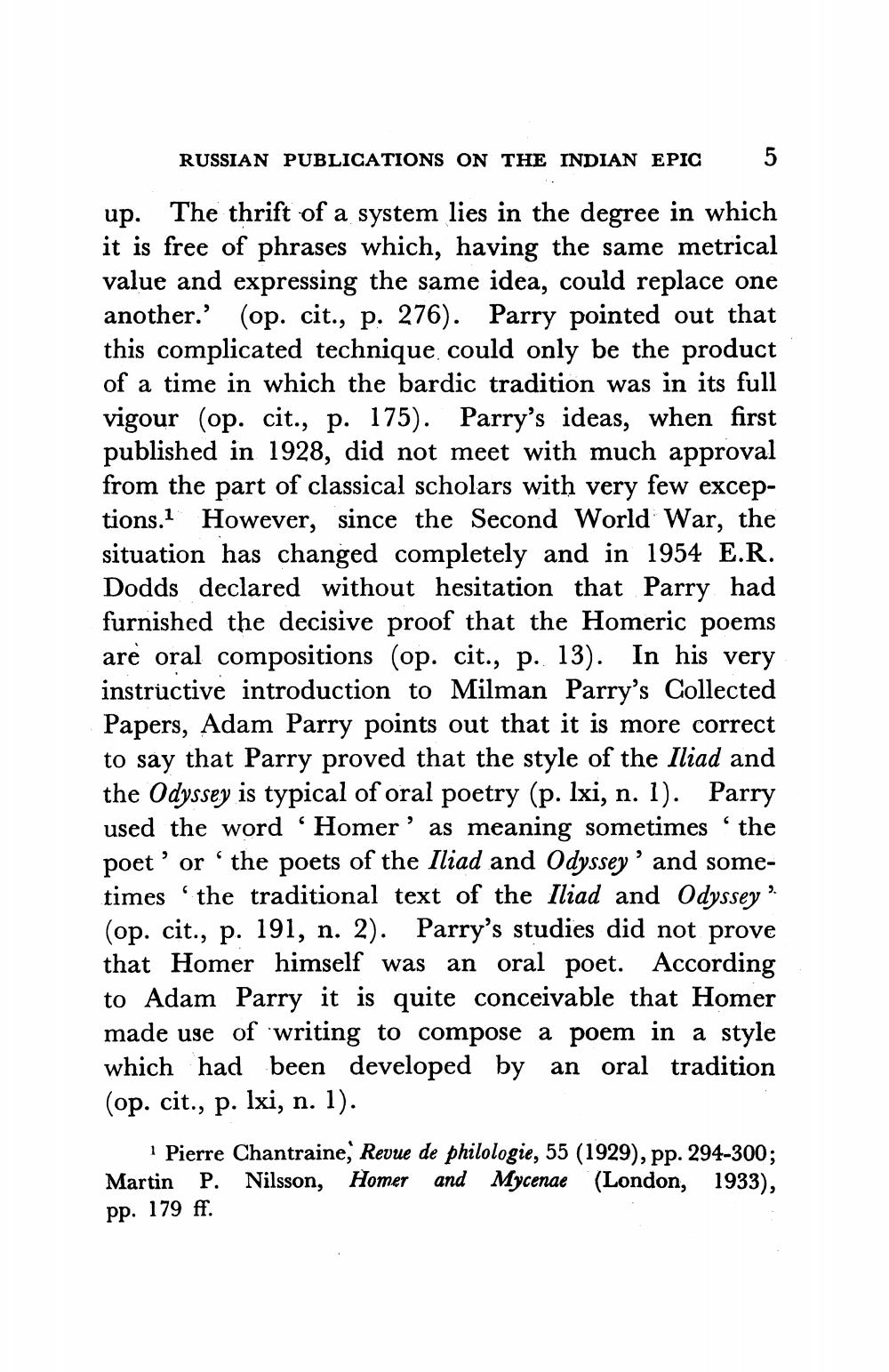________________
RUSSIAN PUBLICATIONS ON THE INDIAN EPIC
5
up. The thrift of a system lies in the degree in which it is free of phrases which, having the same metrical value and expressing the same idea, could replace one another.' (op. cit., p. 276). Parry pointed out that this complicated technique could only be the product of a time in which the bardic tradition was in its full vigour (op. cit., p. 175). Parry's ideas, when first published in 1928, did not meet with much approval from the part of classical scholars with very few exceptions. However, since the Second World War, the situation has changed completely and in 1954 E.R. Dodds declared without hesitation that Parry had furnished the decisive proof that the Homeric poems are oral compositions (op. cit., p. 13). In his very instructive introduction to Milman Parry's Collected Papers, Adam Parry points out that it is more correct to say that Parry proved that the style of the Iliad and the Odyssey is typical of oral poetry (p. lxi, n. 1). Parry used the word 'Homer' as meaning sometimes the poet' or 'the poets of the Iliad and Odyssey' and sometimes the traditional text of the Iliad and Odyssey'. (op. cit., p. 191, n. 2). Parry's studies did not prove that Homer himself was an oral poet. According to Adam Parry it is quite conceivable that Homer made use of writing to compose a poem in a style which had been developed by an oral tradition (op. cit., p. 1xi, n. 1).
Pierre Chantraine, Revue de philologie, 55 (1929), pp. 294-300; Martin P. Nilsson, Homer and Mycenae (London, 1933), pp. 179 ff.




